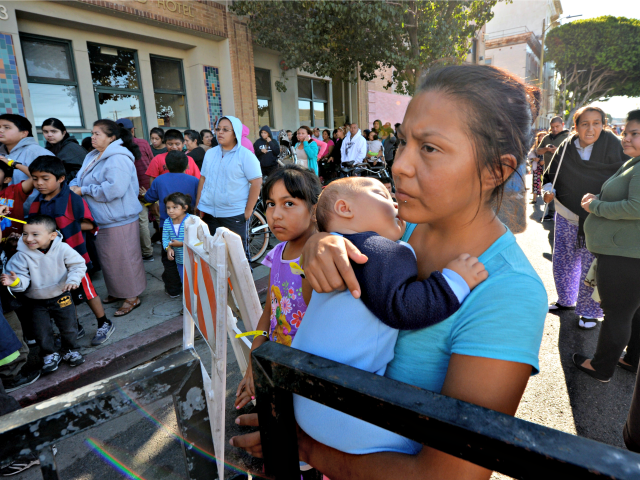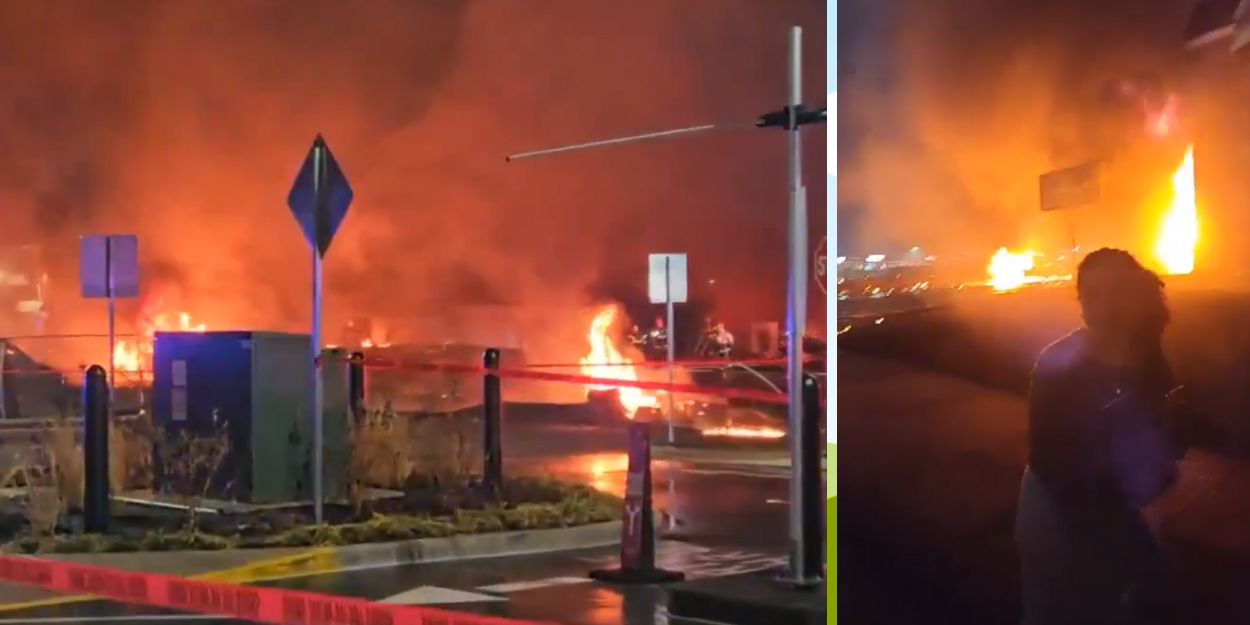Supreme Court Hears Arguments Over ‘Public Charge’ Rule

The U.S. Supreme Court heard oral arguments over the Trump-era “public charge” immigration rule on Wednesday.
Public charge is an immigration law term for migrants the government determines ineligible for green cards due to their reliance on government assistance. In 2019, former President Donald Trump expanded the rule to include migrants who use non-cash benefits like food stamps and Medicaid. Before then, public charge was defined as someone “primarily dependent on the government for subsistence.”
As Breitbart News reported:
The public charge rule was mandated by Congress to help deny residency and citizenship to legal and illegal migrants who cannot work enough to stay out of poverty. The resulting regulation was adapted to exclude migrants who rely on government-delivered welfare and other forms of taxpayer charity, which was then described as being a “public charge.”
But the public charge regulation was rarely enforced on migrants and their U.S. sponsors. So President Donald Trump’s deputies issued a regulation that instructed immigration officers on how to decide when particular migrants were dependent on the government’s increasing variety of aid and welfare programs.
However, an Illinois district judge ruled Trump’s expanded “public charge” rule could not be implemented nationwide during Trump’s last months in office. As a result, in March 2021, President Joe Biden’s Administration stopped defending the legal challenges to the rule that carried over from Trump’s administration. After the Illinois district judge’s decision, the Biden administration dismissed the remaining legal challenges involving the public charge rule.
After Biden’s Administration chose not to defend the rule in court, the administration removed the rule from the Federal Register. Then, Biden ordered a new public charge rule.
Biden’s actions likely violate the Administrative Procedure Act (APA) that governs federal rulemaking. Under the APA, the federal government must allow for a notice-and-comment period when implementing new rules and when rescinding old rules.
Chief Justice John Roberts said Biden’s attempt to circumvent the APA raised the question of “collusive action.”
“I’m not questioning anybody’s motives. I’m questioning the ease with which a decision in your favor will make it for an incoming administration to avoid notice-and-comment review,” Chief Justice Roberts told Biden’s Deputy Solicitor General Brian H. Fletcher.
Justice Elena Kagan also expressed concerns about Biden’s strategy, telling Fletcher he should “assume that that is a problem and that we shouldn’t be greenlighting that behavior for your administration or any other administration.”
Fletcher defended the Biden Administration’s tactics, saying on Wednesday:
Here, DHS had decided to issue a new public charge rule, the ongoing litigation would have complicated that rulemaking and required intrusive discovery, the 2019 rule was not producing its intended effects, and the rules’ unintended and unwanted effects were aggravating a public health crisis.
The oral arguments in this case on Wednesday came less than one week after the Court agreed to hear another consequential immigration case involving the Migrant Protection Protocols, commonly known as the “Remain in Mexico” policy.
Arizona leads a coalition of 12 states that argue they should be able to defend the rule in court due to the Biden administration’s acquiescence to the adverse “public charge” ruling.
Arizona Attorney General Mark Brnovich argued that Biden’s strategy is “an unprecedented legal maneuver.” Because Biden dismissed the remaining legal challenges to the public charge rule, Arizona argues that states that supported the rule were left with no recourse.
Stephen Miller, former Trump adviser and current President of America First legal, released a statement in support of Arizona’s efforts:
America First legal is proud to be working with our state Attorneys General to combat the Biden Administration’s lawless attempts to abandon the defense of federal law. The Biden Administration’s opposition to the plain language of the public charge statute is astounding, and they have rabidly sought–by abandoning the defense of the public charge regulations, and by proposing new regulations now–to advance an incoherent interpretation that permits limitless numbers of welfare-dependent migrants to obtain lawful status in the United States. They must be defeated.
The Supreme Court will determine whether Arizona and the 12 other states can join the legal battle and pick up where the Trump administration left off. The Court is expected to issue its decision between late spring and early summer.
The Case is Arizona v. City and County of San Francisco, No. 20-1775 in the Supreme Court of the United States.
" Conservative News Daily does not always share or support the views and opinions expressed here; they are just those of the writer."





Now loading...